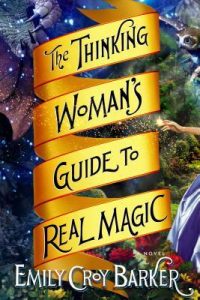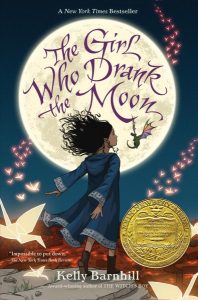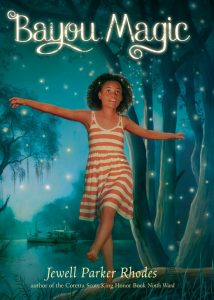Sirens is about voice: the voices of each individual attendee, how those voices come together in conversation, and how those conversations create a community. At Sirens, we want everyone to have an opportunity to use their voice, whether that’s as part of our programming schedule or late into the night over tea.
But we also know that building a space for those conversations—a space where everyone is willing to speak and, equally important, where everyone is willing to listen—is not so simple. So often, we as a society build barriers that prevent people from speaking, and so often those barriers are based on gender, sexuality, race, religion, ability, or other identity—and so often those barriers also help others ignore those voices.
This year, we are featuring a series of posts addressing diversity, inclusion, and intersectionality at Sirens in order to highlight voices that are both vital to our community and are too often unheard.
Sabrina Chin and Amy Tenbrink, Conference Chairs
Back in 2009, I followed a link from Sherwood Smith’s LiveJournal post to learn about this conference featuring women in fantasy literature. It was called Sirens, she’d announced, and she was a guest of honor, along with Tamora Pierce and Kristin Cashore. Sherwood alone would have convinced my broke little college-student heart to book my flights, but Tamora Pierce as well, the creator of my childhood idol Keladry of Mindelan of the Protector of the Small books? Did it matter that I’d never attended a convention or conference before? Or that I knew nobody at all except Sherwood?
It’s been nine years since I first attended Sirens. In that time, I’ve learned a lot about myself—as a reader, a woman, and an immigrant of Chinese heritage who grew up in eastern Canada and now lives in New York City. Back then, I was fresh out of my teen years and switching college majors from engineering to anthropology, and I certainly hadn’t read a book for fun since high school. (Thanks, Sirens peeps, for introducing me to the works of Suzanne Collins and Gail Carriger that year!) Nowadays, I’m a book publishing professional with almost seven years of publicity and marketing experience. I have my habits, preferences, and biases. I am introverted, discerning when it comes to my reading material, unafraid of sharing my opinions, and comfortable in my own skin.
Over the last nine years, I’ve also learned lot about the world. I’m shaken up by rage-inducing injustices happening around me every day, but I still must find the strength to leave my house, go to work, and generally be out in public. I’ve perfected my resting bitch face (sharp mouth, distant gaze), my purposeful walk (no stopping, look up directions ahead of time), and my snappy comebacks (only used in a safe environment with other people around, natch). Though I am confident in my identity, it is oftentimes hard to be in this body: this petite, Chinese immigrant female body on which people often project their expectations and stereotypes. I’m no stranger to being overlooked or underestimated. I can no longer keep count the number of microaggressions and instances of flat-out bigotry I’ve experienced by strangers, colleagues, or even “friends.” If you asked me if a good chunk of my personality is a reaction to this, I would say yes, it’s my armor.
In 2009, discussions of diversity, representation, and inclusiveness in the book community were still rumblings—present for a long time, but under the radar. Now, they’ve rightfully become headlining topics in pop culture and entertainment as a whole. Sirens, too, has clearly evolved to become more intersectional in its focus. I delight in discovering new fantasy writers of diverse backgrounds who are invited as guests of honor, and whose books appear on our on reading lists and featured in programming sessions. (No one back in 2011 can forget Nnedi Okorafor’s monstrously amazing keynote, either!) But it’s the community, made up of all stripes of people who love reading and discussing women in fantasy literature, that makes Sirens so incredibly special. I’ve made lifelong friends and comrades-in-arms, especially when it comes to the rage-inducing bullshit we face on a daily basis. It’s a treat to reunite with old friends every year, but it is equally as exciting meeting new attendees. It can be daunting, but let this introvert who remembers her first year very well tell you:
The year when the Sirens theme was Rebels and Revolutionaries, a Sirens Studio faculty member shared that “Sirens is the one weekend each year that doesn’t feel like battle.” I choked up upon hearing this utter truth about the community I’m so proud to be part of, and the comfort I feel interacting with its members. Because it doesn’t feel like battle, when so much of my daily life does. That’s a feeling to ponder, but also one to protect. Sirens works very hard to maintain that atmosphere of conducive conversation, healthy debate, and learning. Each October, and throughout the year as a staff member, I interact with many members of our community, some of whom are very different than me. I always keep in mind a few things: Not everyone has my thoughts. Not everyone has my body. Not everyone has my experiences. Not everyone likes the same books. (Though sometimes we all love the same book and that’s awesome!) Most people have heard of intersectionality and have varying levels of awareness. If you haven’t, I advise you to do some research—I promise it’s worth it.
There are, and will be, times of disagreement and possibly discomfort—when someone makes an ignorant comment at a roundtable or a moderator doesn’t call out a panelist’s microaggression. When you’re just lounging in the lobby talking about the latest bestseller or between breaks at Bedtime Stories, you might overhear someone say, “Well you’re Asian, what did you think about the book?” or “I don’t understand asexuality. Can you explain it to me?” As open and aware as we’ve become, we’re not perfect. I know most Sirens attendees don’t look like me. But I also know, as a cisgendered mostly heterosexual woman, that I have much to learn from others as well. Most progress happens in that hazy space of uncomfortable conversations and being challenged. I remember one Sirens attendee passionately critiquing a short story by an author I really loved, saying that the author, no matter how unintentionally, appropriated her culture’s religion and myth for a “fantasy” setting and flavor. Or how another attendee wasn’t comfortable with a book’s inconsistent use of pronouns for a trans character, something I hadn’t thought of until it was pointed out to me.
The conversations at Sirens are spirited and lively, as they often are when a group of whip-smart, opinionated, voracious readers come together. I try to enter every interaction with good intentions, a pursuit of understanding, and respect. Sometimes I also need to do the emotional work of engaging with others different than me, especially if they are from a marginalized group (person of color, varying ability, genderqueer, neuro-atypical, and so on). I encourage every Sirens attendee, new and returning, to do that as well. Sometimes I make mistakes; when someone disagrees with me, I hope they feel comfortable telling me so, hopefully acknowledging that I did so out of ignorance and not malice. I know how much work it can be to explain my existence to other people. The difference at Sirens is that I’m encouraged to share my perspective—if I want to.
This kind of community requires active participation of its members to be great, so Sirens needs all of you. This is a hard line to walk. I did, and still do, a lot of listening. And for those of you peeling off your armor, even for a weekend, I hope it’s as much of a relief for you as it is for me.
Faye Bi works as a book publicist in New York City, and leads the Sirens communications team. She’s yet to read an immigrant story she hasn’t cried over, and is happiest planning nerdy parties, capping off a long run with brunch, and cycling along the East River.





































































Connect with the Sirens community
Sign up for the Sirens newsletter